Thousands of people with cystic fibrosis are finally assured of “life-changing” medicines on the NHS in what families have hailed as a “monumental day”.
UK regulators have reached a deal with drug makers Vertex over three “miracle” drugs – Orkambi, Symkevi and Kaftrio – that can extend life for decades.
This follows years of campaigning by the Cystic Fibrosis Trust, which described the deal as a “really important moment” for thousands of families blighted by the deadly disease.
The treatments will help many to “live a normal life”, potentially stopping attacks of serious illness and reducing the need for grueling daily physiotherapy.
David Ramsden, chief executive of the charity, said: “This is a really significant day and there are many excited families today.
“In a disease as unforgiving as cystic fibrosis, you need to have access to the best treatments available and we are now in a position in England where that seems certain.”
One of the beneficiaries is Rufus who, like any child who is about to turn two, doesn’t like to sit still.
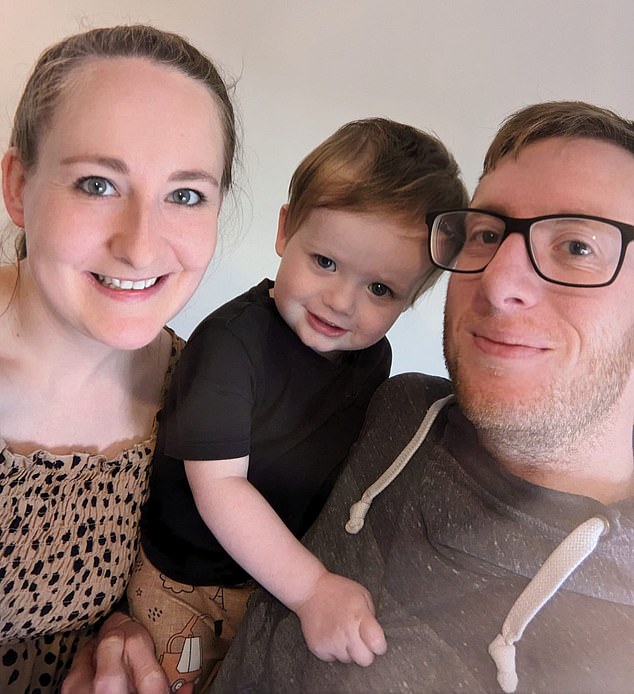
His parents, Alex and Ben, both 31, described crying with relief at the news that he will now be eligible for the triple therapy, Kaftrio, starting next month.
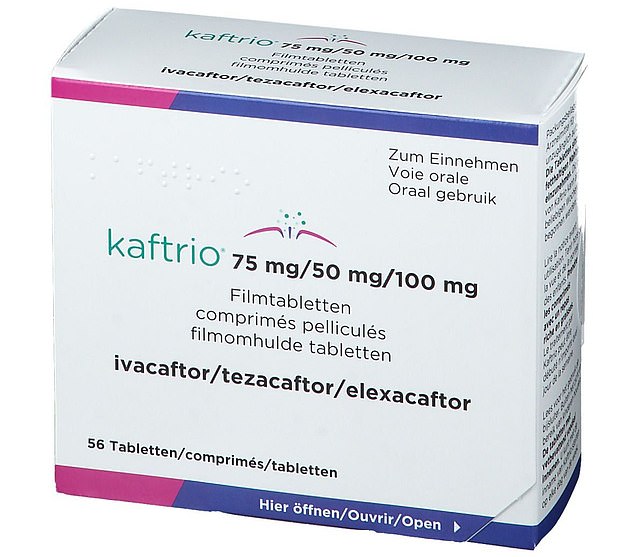
Kaftrio is one of a trio of drugs recently approved for use in people with cystic fibrosis on the NHS.
Cystic fibrosis is an inherited condition that causes sticky mucus to build up in the lungs and digestive system and affects around 11,000 people in the UK, of whom 1 in 25 carry the defective gene.
It is a progressive disease, symptoms usually begin in early childhood and there is no cure. The average life expectancy is still around 30 years, but these treatments are expected to extend it.
Known as “modulatory” drugs, they are the first to treat the cause of the disease, rather than simply treating the symptoms, with ongoing results suggesting they can prolong life for decades.
Patients have been able to access the treatments during an interim period when more data on their effectiveness was being collected.
But at a cost of around £100,000 per patient per year, NICE said in November that although clinically effective, they were too expensive to recommend at the list price.
There were fears that new patients, including young children, would miss out on medications when they became eligible.
Details of the commercial deal remain confidential, although it is likely to be below the list price.
Nice was also able to use a new method for evaluating drugs, meaning it can give more weight to the health benefits of drugs for treating more serious diseases, such as cystic fibrosis.
The decision, effective in about 90 percent of people with the disease, will end anxiety for those already taking the drugs and for families of young children who are about to become eligible.
Ramsden added: “We’ve already seen these drugs make a big difference to people’s lives.”
“There has been a huge increase in the number of women with cystic fibrosis having babies, an unexpected baby boom, which has been a really lovely thing to see. “These drugs allow for completely new moments of life that people can take advantage of.
‘But it is important to say that this is just the beginning for patients with cystic fibrosis. However, we must not forget that these treatments are not a cure and simply do not work for some people.’
Around 8,200 people are already receiving treatments in England and will continue to be able to receive them through the NHS.
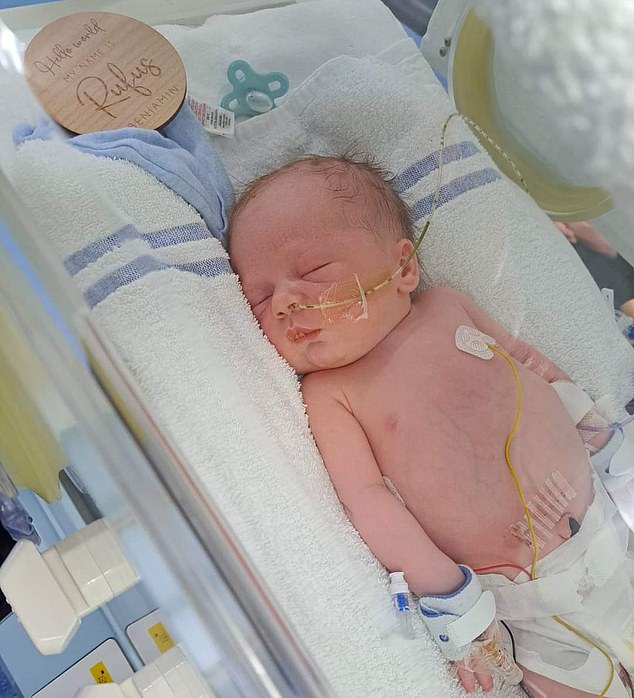
Rufus was diagnosed with cystic fibrosis when he was just a few days old, a genetic disease that causes sticky mucus to build up in the lungs and digestive system.
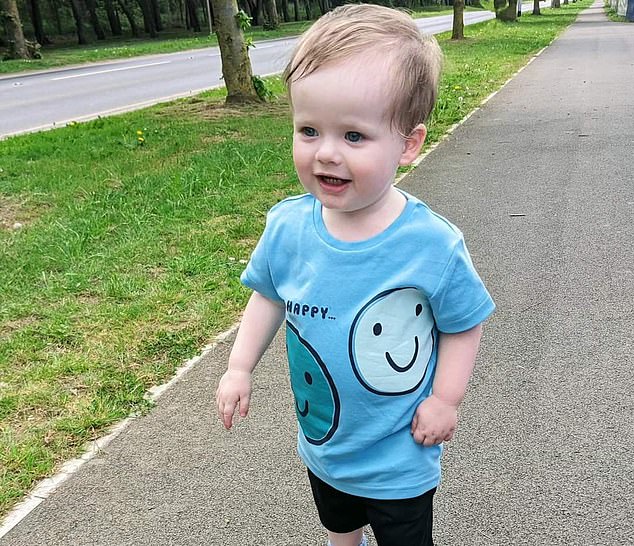
Such is the severity of his condition, the family moved from west to east Yorkshire so that he could benefit from Bridlington’s sea air.
The drugs will also be available to people diagnosed with cystic fibrosis in the future.
Negotiations with the health services of Scotland, Wales and Northern Ireland are expected to be finalized in the coming days.
John Stewart, specialist commissioning director for NHS England, said: “We know this is the news people living with cystic fibrosis and their families have been waiting for.”
‘Thanks to this deal with the NHS, thousands of patients, including young children, will be able to have a much better quality of life, whether walking to school or riding a bike for the first time.
“The NHS has a strong track record of offering people with cystic fibrosis life-changing treatments, with 8,000 people now benefiting, and today’s agreement gives families the security of knowing they will be guaranteed access to these medicines in the coming years”.
One of the beneficiaries is Rufus, who, like any child about to turn two, doesn’t like to sit still.
But a simple cough or cold can mean you’re out of action for weeks at a time, unable to play or attend toddler groups.
He must endure grueling physiotherapy three or four times a day when he is unwell and has little energy for anything else.
Diagnosed when he was just a few days old, his parents Alex and Ben, both 31, described crying with relief at the news that he will now be eligible for the triple therapy, Kaftrio, starting next month.
They say the drug, which significantly improves lung function and helps people with cystic fibrosis breathe more easily, will allow him to lead a normal life with his older brother, four-year-old Henry.
“It’s been a big concern, especially for Rufus’ future,” said Ben, who works in social care.
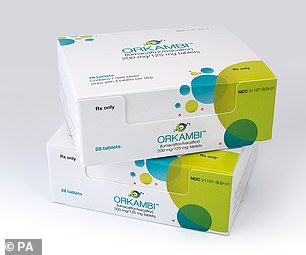
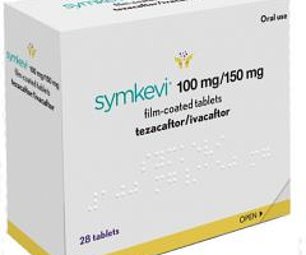
Two other drugs affected by the new agreement are Orkambi and Symkevi, which can extend the lives of people with cystic fibrosis by decades.
‘It’s been bittersweet hearing from other families who are a little older than him, hearing how beneficial it is.
“We’ve been in limbo thinking this could be really good for him, but then we realized maybe he wouldn’t understand it.”
Such is the severity of his condition, the family moved from west to east Yorkshire so that he could benefit from Bridlington’s sea air.
Now they have put him on the waiting list for daycare and hope that the treatment will allow him to live a full and normal childhood.
Full-time mum Alex said: “For Rufus, it means he will be like any other child, which is everything we want him to be.” We just want to have the same opportunities as anyone else and this should give you that.
‘When he is well, he is like any other child, but when he is sick, he has no life.
“He can’t go out with groups of small children or play because he is not well enough and is very lethargic. With this medicine he will be able to go to nursery and live like any other small child.
‘What this means is that when you get sick, you won’t be as sick, you won’t get to the right level. He’ll be like any other child who catches a cold or a virus.’

